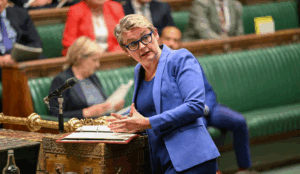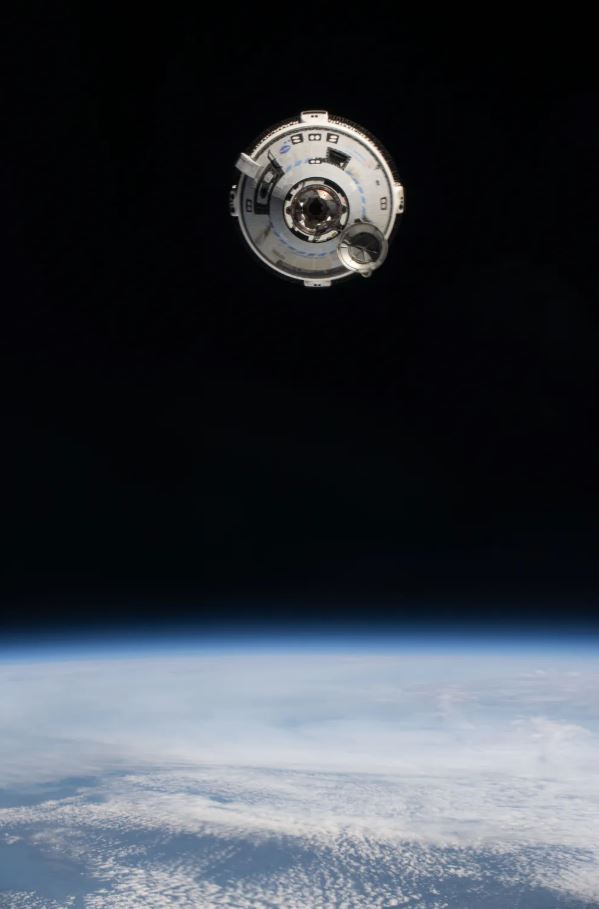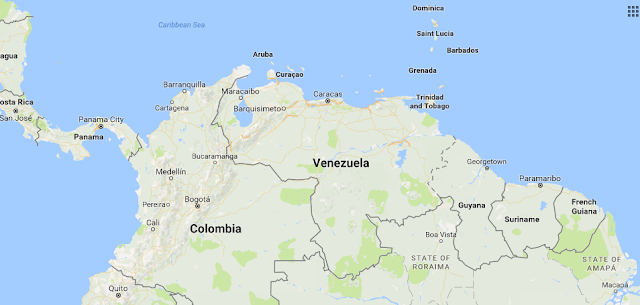Venezuela opposition accuse Maduro of 'coup'
after referendum quashed
 © JUAN BARRETO, AFP | Supporters of Venezuelan President Nicolas Maduro force their way to the National Assembly during an extraoridinary session called by opposition leaders, in Caracas on October 23, 2016
© JUAN BARRETO, AFP | Supporters of Venezuelan President Nicolas Maduro force their way to the National Assembly during an extraoridinary session called by opposition leaders, in Caracas on October 23, 2016
by
NEWS WIRES
Venezuela is bracing for turbulence after the socialist government blocked a presidential recall referendum in a move opposition leaders are calling a coup.
The opposition is urging supporters to take to the streets, beginning with a march on a major highway Saturday led by the wives of jailed activists, while a leading government figure is calling for the arrest of high-profile government critics.
Polls suggest socialist President Nicolas Maduro would lose a recall vote. But that became a moot issue on Thursday when elections officials issued an order suspending a recall signature drive a week before it was to start.
"What we saw yesterday was a coup," said former presidential candidate Henrique Capriles, who had been the leading champion of the recall effort. "We'll remain peaceful, but we will not be taken for fools. We must defend our country."
He had to say that they will remain peaceful or he would most likely have been arrested for treason and we would never hear from him again.
International condemnation was swift. Twelve western hemisphere nations, including the U.S. and even leftist-run governments such as Chile and Uruguay, said in a statement Friday that the suspension of the referendum and travel restrictions on the opposition leadership affects the prospect for dialogue and finding a peaceful solution to the nation's crisis.
In another sign of growing regional tensions,
Colombia's flagship airline briefly grounded all flights to Caracas after a Venezuelan air force jet came close to an Avianca Boeing 787 with about 200 people aboard.
The commercial jet landed safely at its intended destination of Bogota 90 minutes later. The airline said Saturday that flights would be resumed Sunday following clarification from the two governments.
The socialists won power nearly two decades ago with the election of the popular former President Hugo Chavez, and for years enjoyed easy election victories. But
with the economy in free fall, polls show most Venezuelans have turned against the party, and over the years, the administration has gradually become increasingly autocratic.
Critical television stations have been closed and several leading opposition activists have been imprisoned. The country's supreme court, packed with government supporters, has endorsed decree powers for Maduro and said he can ignore Congress following a landslide victory for the opposition in legislative elections.
The election commission, which has issued a string of pro-government rulings, halted the recall process on grounds of alleged irregularities in a first-round of signature gathering.
Polls suggest 80 percent of voters wanted Maduro gone this year, and
the electoral council on Tuesday also ordered a delay of about six months in gubernatorial elections that were slated for year-end which the opposition was heavily favored to win. It gave no reason for the delay.
The opposition charges that the socialist party has simply decided to put off elections indefinitely in the face of overwhelming voter discontent.
The opposition coalition has called for a massive street protest Wednesday, on what would have been the start of the signature-gathering campaign.
Maduro was traveling outside the country, but in a televised address Friday he urged calm at home.
"I call on everyone to remain peaceful, to engage in dialogue, respect law and order and not to do anything crazy," he said.
Meanwhile, one of his most powerful allies, Diosdado Cabello, said top opposition leaders should be jailed for attempting election fraud. And opposition leaders said a local court blocked eight of their leaders from leaving the country.
Amid the rising tensions, former Spanish Prime Minister Jose Luis Zapatero, who for months has been attempting to mediate dialogue between the two sides, is in Caracas and expected to meet Saturday with representatives of the opposition and the government.
The opposition had centered its energy on rallying Venezuelans to sign petitions next week demanding a referendum on Maduro's removal. That would require collecting and validating 4 million signatures from 20 percent of the electorate within three days in each of the country's 24 states.
But the campaign had already become mostly symbolic because the election board ruled in September that no vote would take place this year.
That timing is crucial. A successful vote to oust Maduro this year would have triggered a presidential election and given the opposition a good shot at winning power. If Maduro is voted out in 2017, though, his vice president will finish the presidential term, leaving the socialists in charge.
The electoral council said Thursday the decision was based on rulings by courts in four states that found there was fraud in the initial stage of the petition drive, when the opposition collected signatures from 1 percent of electorate.
The council itself had validated those signatures in August and allowed the process to move forward. It gave no indication if or when the process would resume.
The move sparked a new round of international condemnation of the socialist government.
Republican Florida Sen. Marco Rubio called Friday for increased sanctions on Venezuela, the head of the Organization of American States promised concrete consequences for violating democratic norms, and U.S. State Department spokesman John Kirby said the elections board was being used to block voters' "right to determine the direction of their country."
(AP)
Chile's embattled Bachelet put to test in local polls
 Chilean President Michelle Bachelet takes part in celebrations for the 206th anniversary of the country's independence, in Santiago on September 19, 2016 © AFP/File / by Paulina Abramovich
Chilean President Michelle Bachelet takes part in celebrations for the 206th anniversary of the country's independence, in Santiago on September 19, 2016 © AFP/File / by Paulina Abramovich
SANTIAGO (AFP) -
Chile's opposition is leading with a razor-thin margin in local elections that could deal a disappointment to embattled President Michelle Bachelet by returning conservatives to power.
Seen as a litmus test for her ruling center-left coalition one year before her term ends, with 95.79 percent of the vote counted, a conservative coalition Chile Vamos (Let's go Chile) was leading with 38.53 percent against 37.07 percent for the ruling New Majority coalition.
Opinion polls had given Bachelet's center-left coalition a razor-thin lead before polls opened.
"We've got to do things better. That's what the people are asking for," Bachelet said on Sunday after learning the results.
The local polls are the last vote before general elections in 2017 that will decide the Socialist leader's successor, at a time when the left in Chile -- as in much of Latin America -- is struggling.
In the elections, which serve as the unofficial opening of the 2017 campaign season, some 14 million voters are choosing 346 mayors, plus city councils.
The vote came as Bachelet, Chile's first woman president, has been sideswiped by a corruption scandal involving her son and is struggling to deliver on the reform agenda that got her elected by a landslide in 2013.
After testing political waters in the local polls, the country's parties will nominate presidential candidates and launch their campaigns.
The 65-year-old Bachelet -- serving for a second time as the South American country's president -- urged people to participate in the election, amid fears Sunday's polls would be marred by low turnout.
- Looking ahead to 2017 -
Bachelet is one of the last remaining leaders from a "pink tide" of left-wing governments that swept Latin America in the last decade.
She served a first term from 2006 to 2010, and -- constitutionally barred from immediate re-election -- returned in 2014.
But her popularity has plunged since accusations emerged last year that her son and his wife used political influence and inside information to make $5 million on a shady real estate deal.
A separate campaign-finance scandal involving some of the country's biggest firms and political parties has also been damaging.
Bachelet herself has not been implicated in either scandal, although they have hurt her image as a squeaky clean reformer.
Elected with 66 percent of the vote, her popularity now stands at just 23 percent.
The top name on the left currently being floated for a presidential run is
Isabel Allende -- not to be confused with her distant relative of the same name who is a best-selling novelist.
She is a senator and the daughter of former president Salvador Allende, who was overthrown by late dictator Augusto Pinochet in a 1973 coup.
Journalist and independent Senator Alejandro Guillier also scores well in opinion polls, while former president Ricardo Lagos (2000-2006) has thrown his hat in the ring, too.
On the right, former president Sebastian Pinera (2010-2014) is tipped as the likely nominee, but has yet to declare his candidacy.
The local polls come amid an economic slowdown in Chile, hit hard -- like much of the region -- by the plunge in global commodity prices.
Chile, the world's top copper producer, will see economic growth of just 1.75 percent this year, before a pickup of 2.25 percent in 2017, the government forecasts.
by Paulina Abramovich









